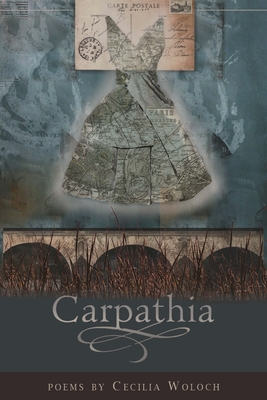The poet Adam Lizakowski will be reading from his book
Chicago, City of Belief on June 15th at the Archer Branch of the Chicago Public Library. In 2008 this bilingual book of poems was chosen by the Polish Division of UNESCO as the book of the year.

Here's a poem from that book in Polish and in English.
Wszyscy podróżujemyPodróż to pamięć, natchnienie wielką
poezją. Podróż – obietnica najsłodsza o lepszym
jutrze, klucz do innych pejzaży i wzruszeń.
W rynku w Dzierżoniowie spotkałem Jana,
pił piwo pod parasolem:
– Ja teraz mieszkam w Londynie – powiedział
z uśmiechem na ustach.
Napotkany w kawiarni Jurek z zadowoleniem
w głosie mówił:
– Właśnie przyjechałem do Polski
na wakacje z Grecji.
– A jak żyje Jola? – zapytałem.
– Ona teraz mieszka w Paryżu.
– A co słychać u Krzyśka?
– Jak to, nie wiesz ? – zapytał zdziwiony. – Od lat
mieszka w Norwegii.
Andrzej mieszka w Niemczech, Beata w Toronto,
Kowalscy w Chicago, Malinowscy jadą do Rzymu.
Podróżujemy za pracą, chlebem,
jaśniejszym niebem, lepszą przyszłością,
zabieramy z sobą blask przeszłości, sadów,
domów, ulic, miast, twarzy bliskich,
stając się powoli naczyniem wspomnień:
jedni z kamienia polnego, inni z alabastru,
w którym jest olejek do nacierania
stóp i dusz.
Podróżujemy, wszędzie jesteśmy
i nigdzie nas nie ma.
Mieszkamy tu i tam
i nigdzie nas nie ma.
Podróżujemy i jesteśmy poza burtą
naszych ojczyzn,
toniemy – wielu jest już topielcami,
toniemy, bo nie ma pracy,
toniemy, bo nasze dzieci są głodne,
toniemy, bo nie ma dla nas przyszłości,
toniemy, toniemy, toniemy.
We All TravelTravel is a memory, an inspiration by a great
Poetry. Travel: the sweetest promise of a better
Tomorrow: a key to different landscapes and emotions.
In the market of Dzierzoniów, I met John.
He was drinking beer under an umbrella.
“I live in London now,” he said
With a smile on his face.
Encountered in a café, George, with glee
In his voice, said,
“I’ve just arrived in Poland
For a vacation from Greece.”
“And how is Yola,” I asked.
“She now lives in Paris.”
“And what about Chris?”
“What? Don’t you know,” he asked, surprised,
“For years now he’s been living in Norway.”
Andrew lives in Germany; Beatrice, in Toronto;
The Kowalskis, in Chicago; the Malinowskis are going to Rome.
We travel for work, bread,
A brighter sky, a better future.
We take with us the glitter of the past, of orchards,
Of houses, streets, cities, and of familiar faces,
Slowly becoming a bowl filled with memories.
Some are made of a rock from a field; others of alabaster,
In which there is oil for rubbing
Both feet and souls.
We travel. We are everywhere,
And we are nowhere to be found.
We live here and there,
And we are nowhere to be found.
We travel and we are beyond the edges
Of our native lands.
We drown; many have already drowned.
We drown because there is no work.
We drown because our children are hungry.
We drown because for us there is no future.
We drown. We drown. We drown.
____________
Adam Lizakowski's
Chicago is available from Amazon.














.JPG)







